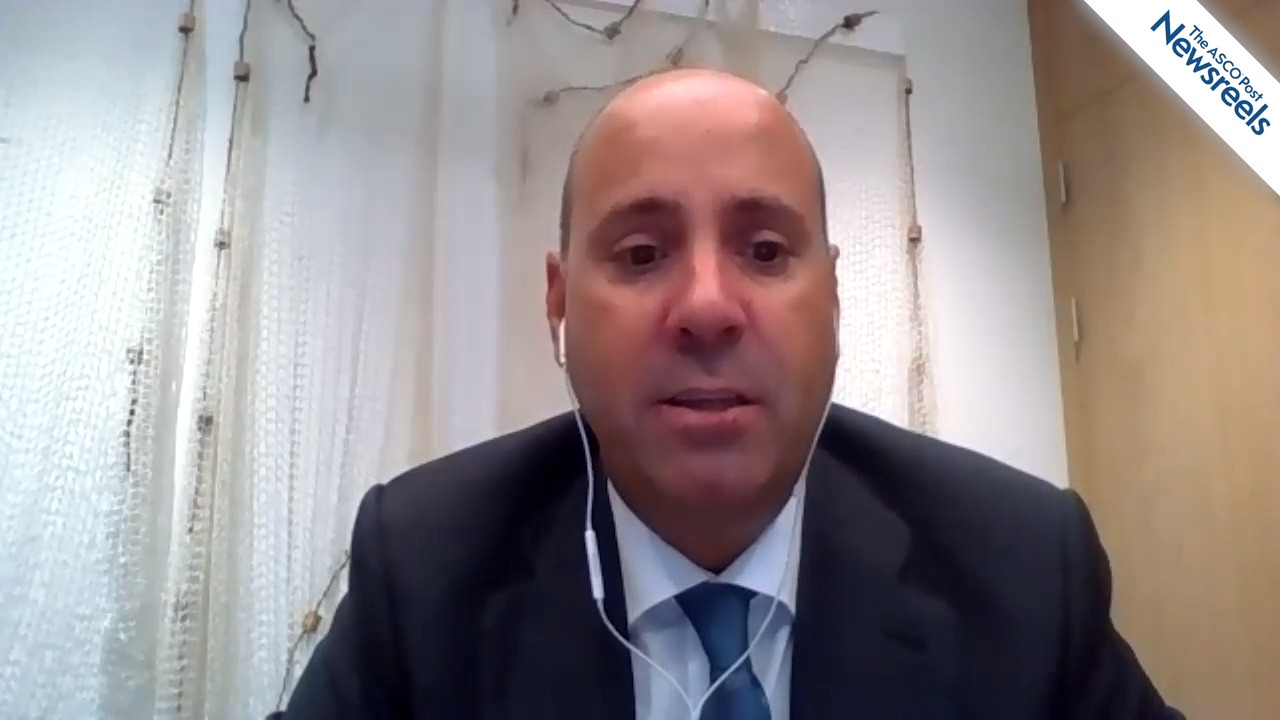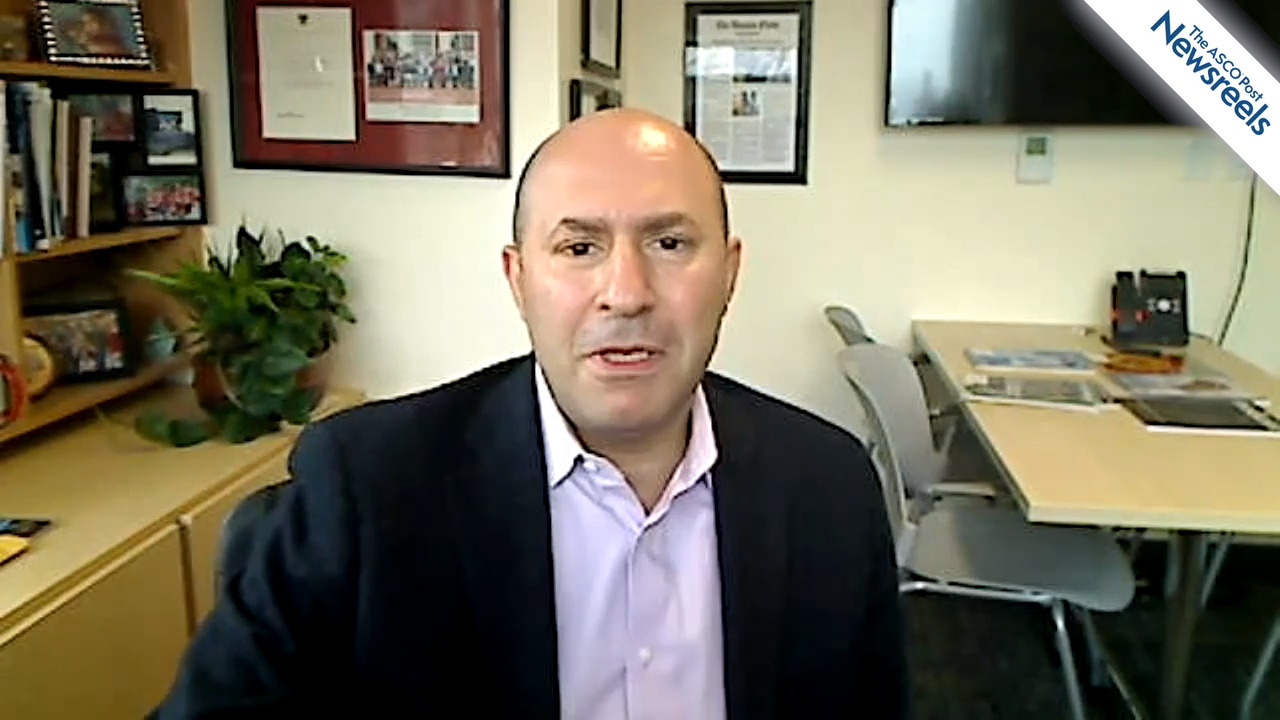Susana N. Banerjee, MBBS, PhD, on Ovarian, Fallopian Tube, or Primary Peritoneal Adenocarcinoma: Treatment Findings From the EORTC-1508 Trial
ESMO Congress 2021
Susana N. Banerjee, MBBS, PhD, of The Royal Marsden NHS Foundation Trust, discusses phase II results of the EORTC-1508 trial, the first study to combine an anti–PD-L1 antibody, atezolizumab, with bevacizumab and the COX1/2 inhibitor acetylsalicylic acid as treatment for patients with ovarian, fallopian tube, or primary peritoneal adenocarcinoma (Abstract LBA32).
The ASCO Post Staff
Javier Cortés, MD, PhD, of Barcelona’s IOB Institute of Oncology, discusses phase III data from the DESTINY-Breast03 study, which support trastuzumab deruxtecan becoming the standard of care for second-line treatment of women with HER2-positive metastatic breast cancer (Abstract LBA1).
The ASCO Post Staff
Toni K. Choueiri, MD, of Dana-Farber Cancer Institute, discusses patient-reported outcomes for quality of life in the KEYNOTE-564 study, which previously met its primary endpoint of disease-free survival with adjuvant pembrolizumab vs placebo following surgery for renal cell carcinoma (Abstract 653O).
The ASCO Post Staff
Neeraj Agarwal, MD, of Hunstman Cancer Institute at the University of Utah, discusses efficacy and safety results from the COSMIC-021 study, in which cabozantinib plus atezolizumab demonstrated clinically meaningful activity and a manageable safety profile in patients with metastatic castration-resistant prostate cancer. The findings support a phase III study of these agents vs a second line of novel hormonal therapy (Abstract LBA24).
The ASCO Post Staff
Gerhardt Attard, MD, PhD, of The Royal Marsden NHS Foundation Trust, discusses findings that show 2 years of abiraterone acetate plus prednisolone-based treatment improves metastasis-free and overall survival in men with high-risk nonmetastatic prostate cancer. The data suggest this combination regimen might be considered a new standard of care (Abstract LBA4).
The ASCO Post Staff
Karim Fizazi, MD, PhD, of the Institut Gustave Roussy, discusses phase III results from the PEACE-1 study, which showed that androgen-deprivation therapy plus docetaxel and abiraterone provided 2.5 years of additional time without radiographic disease progression or death and 1.5 additional years of survival in men with de novo high-volume metastatic castration-sensitive prostate cancer (Abstract LBA5).





